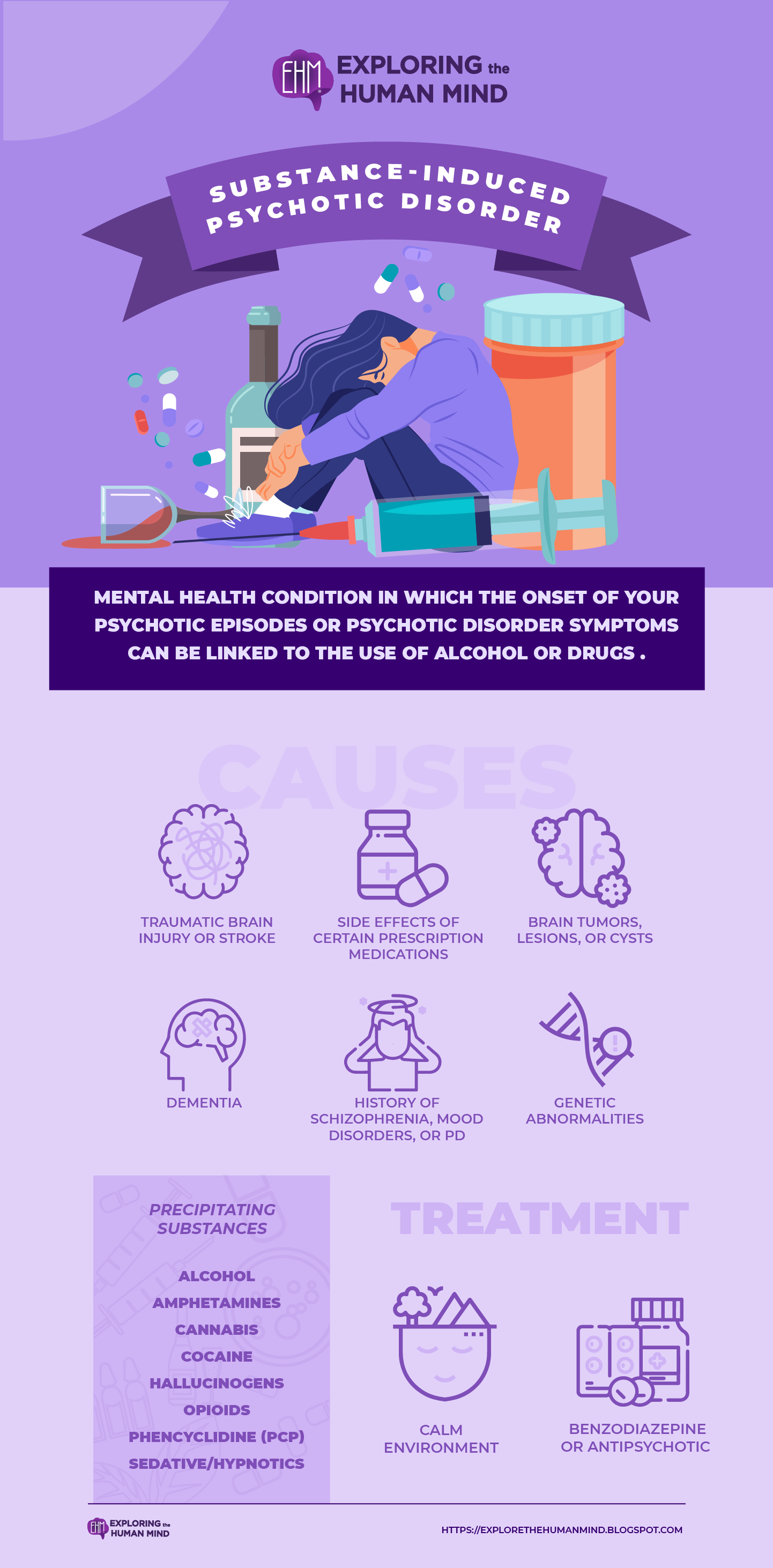Substance-Induced Psychotic Disorder
With a psychotic disorder, you may develop an inability to distinguish between what is real and what is not. This disconnection from reality can be exacerbated by the effects of any drugs or alcohol you may be consuming. Substance-induced psychotic disorder is a serious condition that necessitates medical treatment.
Substance abuse is defined as any use of an illegal intoxicant, any use of prescription medication without a doctor's supervision, or excessive use of legal substances such as alcohol. According to the Substance Abuse and Mental Health Services Administration's (SAMHSA) National Survey on Drug Use and Health, 9.3 percent of people in the United States aged 12 and up required treatment for a drug or alcohol problem in 2009. This excludes people who use drugs on occasion but are not considered to have a dependency problem. This totals 23.5 million people.
Alcohol, amphetamines, cannabis, cocaine, hallucinogens, opioids, phencyclidine (PCP), and sedative/hypnotics are all examples of precipitating substances. To be classified as substance-induced psychosis, the hallucinations and delusions must be more severe than those associated with simple substance intoxication or withdrawal, though the patient may also be intoxicated or withdrawing.
Causes
The misuse of alcohol or drugs is usually the cause of substance-induced psychotic disorder. Other risk factors that may increase your chances of developing this type of disorder include:
- A traumatic brain injury or stroke
- A family or personal history of schizophrenia, mood disorders, or psychotic disorders
- Side effects of certain prescription medications
- Dementia, such as Alzheimer's disease
- Brain tumors, lesions, or cysts
- Genetic abnormalities

vectors by Freepick; graphic design by Vadot
Treatment
- A calm environment
- Often a benzodiazepine or antipsychotic
In most cases of substance-induced psychosis, discontinuing the substance and administering an anxiolytic (e.g., benzodiazepine) or antipsychotic medication is effective.
An antipsychotic drug is the most effective treatment for psychosis caused by dopamine-stimulating drugs such as amphetamine.
Quiet observation may be all that is required for psychosis caused by drugs such as lysergic acid diethylamide (LSD).
For substances with actions that do not involve dopamine, observation may suffice, or an anxiolytic may be required.
Reference:
Tamminga, C. (2022, April 4). Substance-/Medication-Induced Psychotic Disorder. MSD Manual Professional Edition; MSD Manuals. https://www.msdmanuals.com/professional/psychiatric-disorders/schizophrenia-and-related-disorders/substance-medication-induced-psychotic-disorder#:~:text=Substance%2D%20or%20medication%2Dinduced%20psychotic,almost%20any%20disorder%20or%20drug.
Substance-Induced Psychotic Disorder | Knowledge Center. (2023). Sheppard Pratt. https://www.sheppardpratt.org/knowledge-center/condition/substance-induced-psychotic-disorder/
Substance Induced Psychosis Signs, Symptoms & Treatment. (2023, June 29). American Addiction Centers. https://americanaddictioncenters.org/co-occurring-disorders/drug-psychosis-comorbidity






Comments
Post a Comment